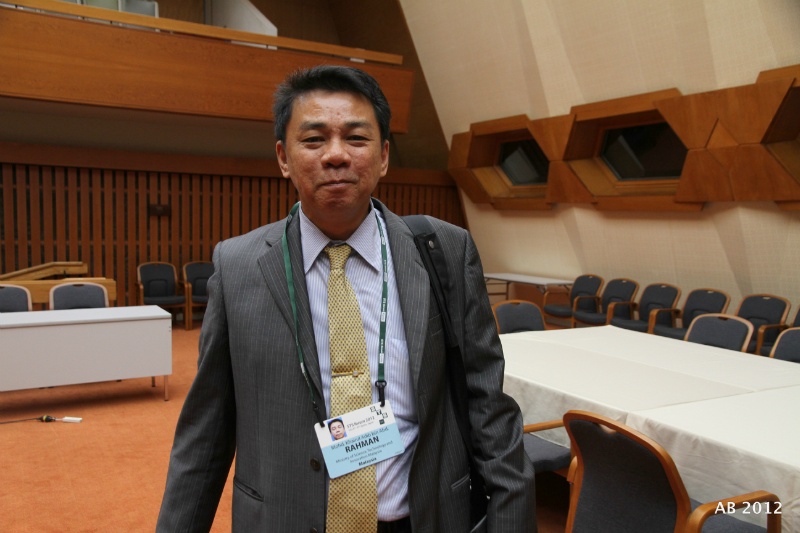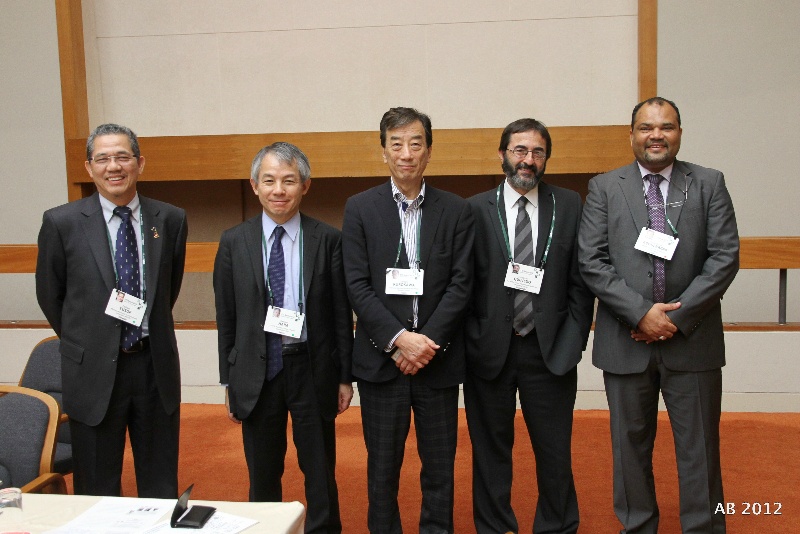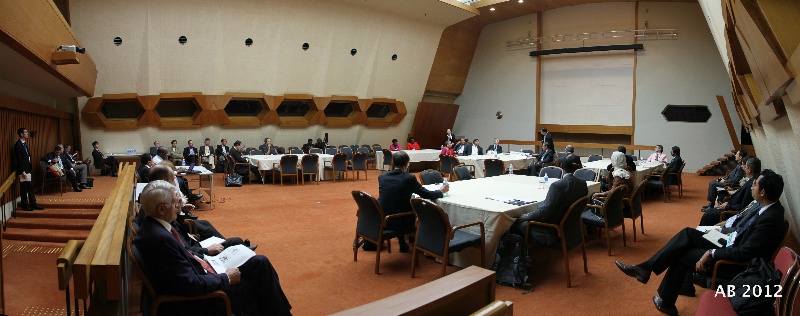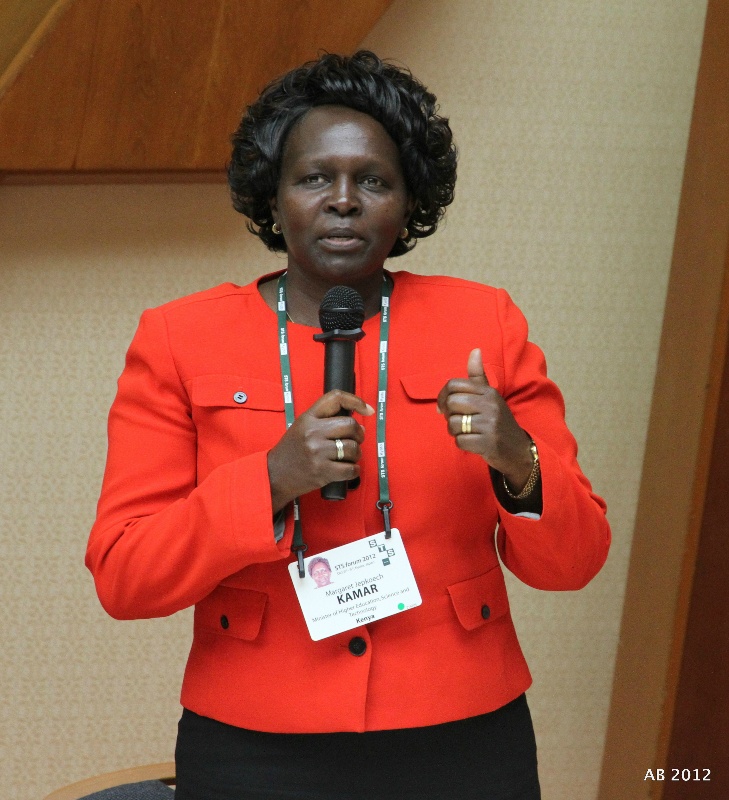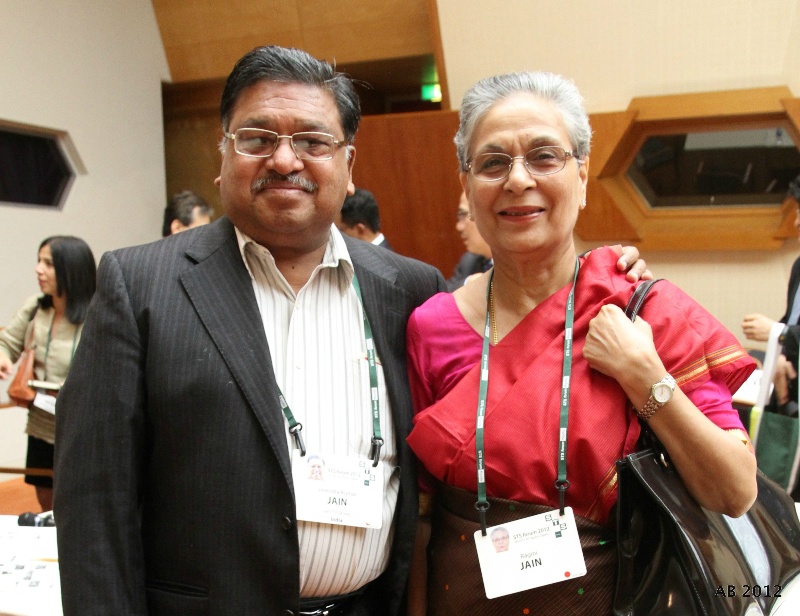As in past years, I was able to catch up with a lot of old friends as well as make new ones at the Science and Technology Society (STS) Forum (1).
On the previous afternoon, I was able to talk about the NAIIC (National Diet Fukushima Nuclear Accident Independent Investigation Committee) report at the EU-Japan forum, including its objectives, its contents and the reasons for executing such an investigation. The report was received warmly by the attending members. It also attracted the notice of Lauren Stricker, the chairman of WANO <http://www.wano.info/> (World Association of Nuclear Operators), who commented that this report was very important and would provide future reference.
I received an invitation for the reception in the evening that was being held for Genevieve Fioraso, the French minister for Higher Education and Research. There were about 20 other important dignitaries of France as well, including H.E Mr. Christian Masset the French Ambassador to Japan, and it was indeed an honor to rub shoulders with ministers as well as Lauren Stricker (chairman of WANO). I am very thankful for this gesture, especially since I was asked to make the opening speech. This speaks volumes of France’s level of awareness and evaluation of the NAIIC report.
The official program for the first day of the STS Forum included some plenary panels, all of which were exemplary. Many of them focused on energy-related topics, a result perhaps of the Fukushima Nuclear disaster.
In one plenary panel, Professor Shinya Yamanaka of Kyoto University, who discovered the ways to make iPS cells, was on the panel for Global Health, with the president of the Karolinska Institute, Professor Harriet Wallberg-Henriksson, acting as the moderator. Although many people might have guessed that, by the time the reception was taking place the next evening, news of Professor Yamanaka getting the Nobel Prize came. Needless to say, he was not there at the reception and we all share our joy.
On the second day, there was one presenter who was unable to attend, and I was asked to act as a moderator in the absentee’s place. The panel discussion was about “Capacity Building.” Charged with this new responsibility, I wondered how to moderate it considering several factors such as the layout of the venue, the backgrounds of the panelists and the number of people in the audience and decided to take a different approach from the one originally planned. In return, the participants seemed very satisfied and we all spent a fruitful time. However, as each panelist came from a different background and different challenges, there was some difficulty bringing them all under one roof. There were some dignitaries from Kenya, including the minister for Science and Technology, and I commented on the Olympic School in the Kibera slum area of Nairobi to the audience, which I had visited a few years ago. I talked to them about my upcoming visit to Nairobi on the 22nd of this month, and they of course welcomed me. Perhaps I will be meeting them there.
Such interactions with different people are important to me because they constantly remind me that the world is ever-changing, borders are constantly expanding and we are all being connected.
